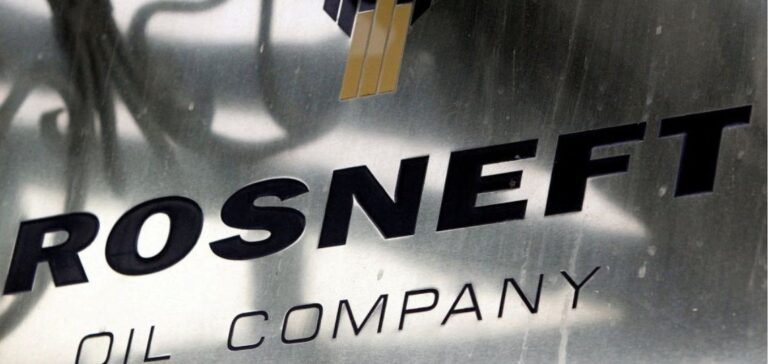Rosneft announces a net profit in 2022 down by 7.9% compared to 2021, but reaching 813 billion rubles (9.8 billion euros at the current rate). The company justifies this decrease by “non-monetary factors”, referring to the international sanctions targeting the Russian energy sector.
Western sanctions hit Russian oil and gas sector
For the past year, Western sanctions have targeted the Russian hydrocarbon sector to limit Moscow’s revenues to finance its military offensive in Ukraine. The Europeans promised in May 2022 to stop almost all their imports of Russian oil, thus reducing their deliveries of crude from Russia by about 90% by the end of the year.
In early December 2022, along with the G7 and Australia, the EU also put in place an embargo on Russian oil and a cap on its export sales price. In February 2023, the same mechanisms were put in place this time for refined petroleum products.
Individual sanctions and trusteeships to affect Rosneft’s net profit in 2022
In Germany, Rosneft’s activities have been placed under supervision by Berlin, another example of the sanctions against the Russian state-owned company. Prior to that, British oil and gas giant BP, a nearly 20% shareholder in Rosneft since 2013, had announced it was divesting from the Russian group. Rosneft boss Igor Setchine, also under individual sanctions, lamented “a context of external pressures” and “a volatile macroeconomic environment” to justify the 2022 results.
Rosneft records gas production
Rosneft, however, was pleased to have set a record in 2022 in its gas production, at 74.4 billion cubic meters, up 15% year-on-year. One of Rosneft’s current major projects is “Vostok Oil” in Siberia, which includes the largest oil fields in the Krasnoyarsk region and is presented as the “largest new hydrocarbon project in the world”. Rosneft hopes to begin production of “Vostok Oil” in 2024, with the goal of reaching 100 million tons of production by the beginning of the next decade.
In 2022, strong net earnings for a high dividend
Rosneft boss Igor Setchine lamented “a context of external pressures” and “a volatile macroeconomic environment” to justify the results of the year 2022. However, he was also satisfied with “the resilience of the business model” of Rosneft. The net profit of 813 billion rubles remains a solid basis for the payment of the dividend for last year’s fiscal year, according to the company.






















